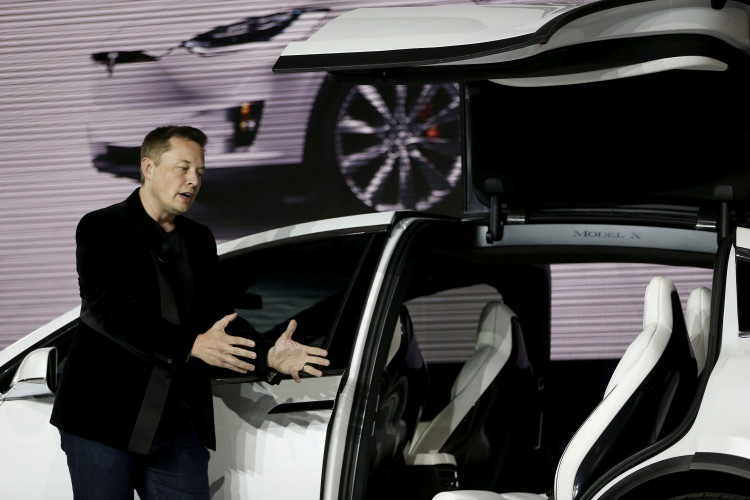Tesla CEO Elon Musk has announced that the electric car manufacturer is set to drop some interior design options for its Model S sedan and Model X sport utility vehicle to make the production process at its assembly factory simpler.
Announcing the update on Twitter, Musk wrote that some design options for the vehicles would be not be available after Nov. 1 as the company looks to simply its production, and perhaps speed up the assembly lines.
He encouraged car enthusiasts who are still thinking about which options to pick to decide before the company discontinues some of the optional features.
"Order now to be sure of the one you want," he said.
Musk did not specify which of the features the company would stop to offer, although it was apparent that perhaps the least-popular features would be the ones to face the chopping block.
As far as the interior options are concerned, a check on Tesla's website showed that both Model S and Model X have four different interior décor options to select from the basic black textile, to leather and additional wood trimmings.
For Model S, aside from the standard front-facing seat configuration in the passenger side, customers can opt to have it rear-facing instead.
Model X, on the other hand, has several seating configurations to choose from: five-, six-, and seven-seat configuration, as well as a six-seat setup with center console.
Given the variety of options, these do affect the ability of its production line to assemble and manufacture the models at a steady pace because of the degree of customization available for buyers.
Previously, Musk conceded that Model X's design might have been too ambitious, and his team scaled down the design for Model 3, a mid-sized sedan, to ramp up production. Tesla has been falling short of Musk's rather aggressive production target.
All the Tesla models will be able to accommodate the optional Autopilot feature, the self-driving computer that assists drivers in parking, cruise control, and lane change, among others.
Musk earlier disclosed that the company was set to complete the upgrade of the Autopilot chip to improve the self-driving capability of Tesla cars that are fitted with the supercomputer.
The new chip improves the processing capability of Autopilot between "500 to 2,000 percent in operations per second," Musk wrote in a tweet the other day. Autopilot processes all the data gathered from the car's sensors and cameras installed in different parts of the vehicle.






